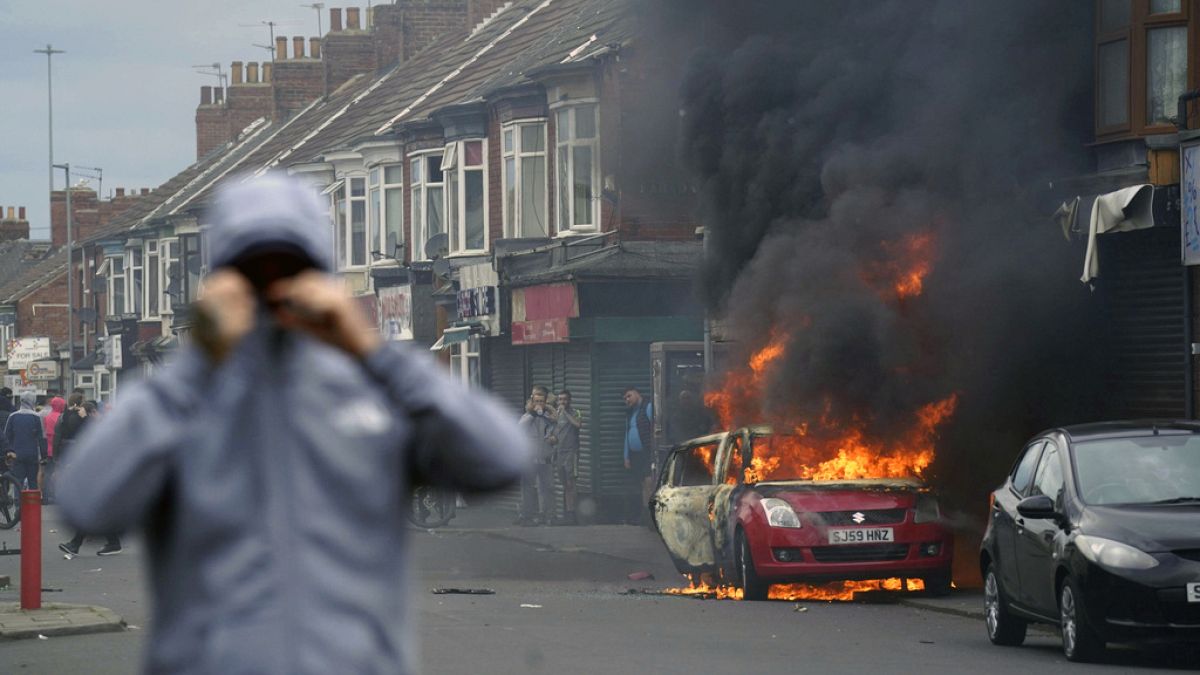An expert in criminology and online extremism believes that the violent demonstrations currently gripping Britain are the product of people feeling threatened by a maelstrom of issues projected onto the “other”.
A scholar in sociology at the University of London suggests social media played a role in the violence that has broken out across the UK in recent days, but the real link was to a larger “latent” problem.
“If you look at the particular incident that has basically been the real tipping point of the violence and the unrest, what it indicates is that it feeds into a much larger problem that has been there, latent,” Stephanie Alice Baker said.
“The role of social media in a lot of these riots was much more symbolic, and it was the way in which people were able to communicate solidarity with one another,” she added.
She argued that the xenophobic unrest could be partially attributed to feelings of “denied freedoms” and perceived risks to British “sovereignty”.
“You have emerging feelings of nationalism, a sense that people are being left behind, a sense that people’s freedoms are being denied, the sovereignty of the nation is at stake,” she said.
“And a lot of this coincides with a rise of immigration and a cost of living crisis. So people have these first hand experiences of grievances and a lot of these negative feelings are projected onto an ‘other’.”
Britain has been convulsed by violence for the past week as crowds spouting anti-immigrant and Islamophobic slogans clashed with police.
The disturbances have been fuelled by right-wing activists using social media to spread misinformation about a knife attack that killed three girls during a Taylor Swift-themed dance event.
More than a dozen towns and cities have been caught up in the unrest including London, Hartlepool, Manchester, Middlesborough, Hull, Liverpool, Bristol, Belfast, Nottingham and Leeds.
“I think these groups were already feeling a lot of these grievances and it just became the opportunity for them to unleash,” Baker said.
She added seeing others engaging in violence makes people “emboldened and enabled to act.”
The violence, some of Britain’s worst in years, has led to hundreds of arrests as the government pledges that the rioters will feel “the full force of the law” after hurling bricks and other projectiles at police, looting shops and attacking hotels used to house asylum-seekers.
Britain’s new government is struggling to quell the unrest and has announced a “standing army” of specialist police to deal with rioting.


